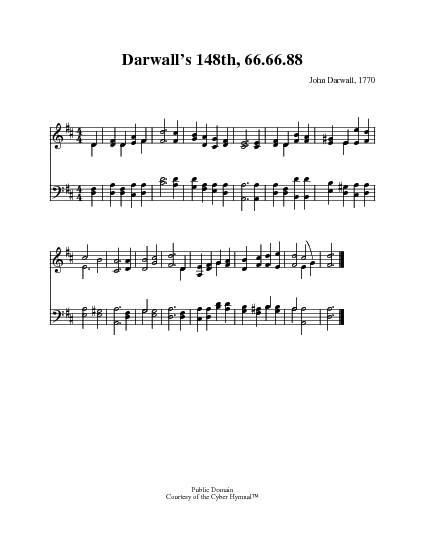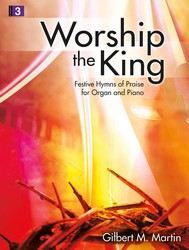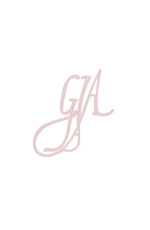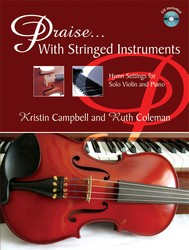- |
User Links
After Sermon

On what has now been sown
Author: John NewtonPublished in 92 hymnals
Printable scores: PDF, MusicXMLAudio files: MIDI, Recording
Representative Text
1 On what has now been sown
your blessing, Lord, bestow;
the pow'r is yours alone
to make it spring and grow.
O Lord, in grace the harvest raise
and you alone shall have the praise!
2 To you our wants are known;
from you are all our pow'rs.
Accept what is your own
and pardon what is ours.
Our praises, Lord, and prayers receive
and to your Word a blessing give.
3 O grant that each of us
now met before you here
may meet together thus
when you and yours appear
and follow you to heav'n, our home.
E'en so, Amen! Lord Jesus, come!
Source: Christian Worship: Hymnal #925
Author: John Newton
 John Newton (b. London, England, 1725; d. London, 1807) was born into a Christian home, but his godly mother died when he was seven, and he joined his father at sea when he was eleven. His licentious and tumultuous sailing life included a flogging for attempted desertion from the Royal Navy and captivity by a slave trader in West Africa. After his escape he himself became the captain of a slave ship. Several factors contributed to Newton's conversion: a near-drowning in 1748, the piety of his friend Mary Catlett, (whom he married in 1750), and his reading of Thomas à Kempis' Imitation of Christ. In 1754 he gave up the slave trade and, in association with William Wilberforce, eventually became an ardent abolitionist. After becoming a tide… Go to person page >
John Newton (b. London, England, 1725; d. London, 1807) was born into a Christian home, but his godly mother died when he was seven, and he joined his father at sea when he was eleven. His licentious and tumultuous sailing life included a flogging for attempted desertion from the Royal Navy and captivity by a slave trader in West Africa. After his escape he himself became the captain of a slave ship. Several factors contributed to Newton's conversion: a near-drowning in 1748, the piety of his friend Mary Catlett, (whom he married in 1750), and his reading of Thomas à Kempis' Imitation of Christ. In 1754 he gave up the slave trade and, in association with William Wilberforce, eventually became an ardent abolitionist. After becoming a tide… Go to person page >Text Information
| First Line: | On what has now been sown |
| Title: | After Sermon |
| Author: | John Newton |
| Meter: | 6.6.6.6.8.8 |
| Language: | English |
| Notes: | German translation: "So segne lieber Herr" by J. T. Mueller |
| Copyright: | Public Domain |
English
- A Collection of Hymns and Sacred Songs: suited to both private and public devotions, and especially adapted to the wants and uses of the brethren of the Old German Baptist Church #42
- A Collection of Psalms and Hymns for the use of Universalist Societies and Families (13th ed.) #40
- A Collection of Psalms and Hymns for the Use of Universalist Societies and Families 16ed. #40
- A Collection of Psalms, Hymns and Spiritual Songs; suited to the various kinds of Christian worship; and especially designed for and adapted to the Fraternity of the Brethren... #109
- A Collection of Spiritual Hymns: adapted to the Various Kinds of Christian Worship, and especially designed for the use of the Brethren in Christ. 2nd ed. #55
- A Liturgy and Hymns for Church Sunday Schools #11
- A New Selection of Hymns; designed for the use of conference meetings, private circles, and congregations, as a supplement to Dr. Watts' Psalms and Hymns #496
- A New Selection of Psalms, Hymns and Spiritual Songs: from the best authors; designed for the use of conference meetings, private circles, and congregations (21st ed. with an appendix) #902
- A Selection of Hymns and Spiritual Songs: designed (especially the former part) for the use of congregations as an appendix to Dr. Watt's Psalms and Hymn #H.CCL
- A Selection of Hymns and Spiritual Songs: in two parts, part I. containing the hymns; part II. containing the songs...(3rd ed. corr. and enl. by author) #H.CCL 10 shown out of 64
German
Notes
On what has now been sown. J. Newton. [Close of Service.] This hymn is in common use in three forms, as follows:—
1. The original in 1 stanza of 6 lines. This is found in a few of the older collections. The stanza is the sixth of J. Newton's hymn "What contradictions meet," which appeared in the Olney Hymns, 1779, Book ii., No. 26.
2. The same stanza, with the addition of a doxology as given in Common Praise, 1879.
3. The same stanza, with the addition of J. Newton's “Short Hymn," "To Thee our wants are known," from the Olney Hymns, 1779, Book iii., No. 103. This is No. 68 in the Irish Church Hymnal, 1873.
--John Julian, Dictionary of Hymnology (1907)
Tune
DARWALLComposed by John Darwall (b. Haughton, Staffordshire, England, 1731; d. Walsall, Staffordshire, England, 1789), DARWALL'S 148TH was first published as a setting for Psalm 148 in Aaron William's New Universal Psalmodist (1770) with only soprano and bass parts. The harmonization dates from the ninete…
ST. GODRIC
CHRISTCHURCH (Steggall)


 My Starred Hymns
My Starred Hymns







